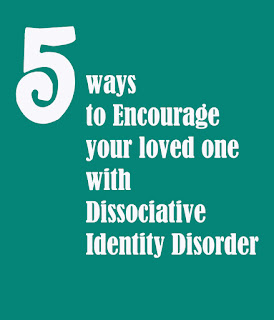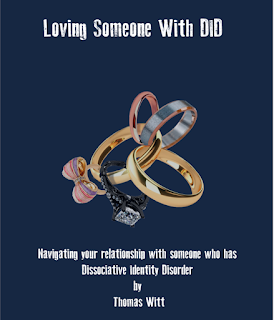5 contracts to make with your spouse's parts

An important piece to living with your loved one's system is entering into contractual relationships with different parts. These contracts can help the system to feel a little more in control as well. Here are a few contracts that I and others have found helpful and healthy. 1 no sex with children : In this contract, both of you carry responsibility. You may not always know when a ‘little one’ is out, but you may have insight which signals the presence of a child alter. We want to protect those children and we want to let them know that we want to protect them. So the contract is that neither you nor your loved one will allow intimacy to happen when a child alter is present. 2 no suicide (temporary contract) The reason I call this a temporary contract is because I can’t make a blanket contract that she will never commit suicid...



